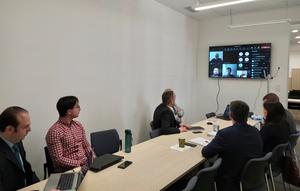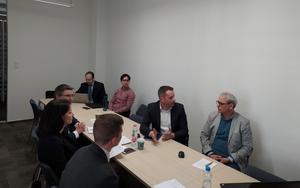On 28 March 2023, the Institute of the Information Society organised a professional mini-conference entitled Data Economy - Data Law, where invited experts discussed current issues of the European data economy and data law in several panels.
In the hybrid workshop, speakers addressed the key issues and discussion points related to the implementation of the European Data Strategy adopted in 2020 in three thematic areas.
The workshop tackled the same overarching problem from different angles: how to protect personal data while data is essential for the good functioning of information society services (especially business services). The privacy logic of the pre-internet era seems increasingly untenable in the age of platforms and generative artificial intelligence. The first panel focused on the highest level, the data economy, the second on data law norms and actors, and the third on users and individuals.
Recent years have already shown in action the power of regulation and its impact on the lives of citizens and business actors. Within each topic, the speakers first presented the ideal legal regulatory concept and environment, and then drew lessons from the experiences of the past years and tested the controversial points by outlining real-life situations.
In the first panel, entitled "Data economy vs data protection: irresolvable conflict or peaceful coexistence?", Katinka Bojnár, Endre Győző Szabó and Zsolt Ződi analysed the relationship between European rules on personal data protection and the new data policy documents (Open Data Directive, Data Governance Act és Data Act). The presentations showed us whether pseudonymisation is a solution, what the situation is with de-anonymization in large databases, and how data protection principles relate to data policy objectives.
In the second part of the workshop, the participants discussed the specificities of the three new EU data law norms, the Open Data Directive, the Data Governance Act and the Data Act. In their presentations, András Pünkösty, Gergely László Szőke and Balázs Hohmann gave an overview of the main characteristics of the three norms, and discussed the role of data intermediaries and the concept of data altruism.
In the third panel, Attila Menyhárd, Tamás Gyekiczky and Lénárd Darázs examined the private law issues of data ownership and the main points of debate and positions related to them. European private law is still in the process of theorising how to strengthen the rights over data while at the same time ensuring the other two aspects, the protection of personal data and the free flow of data.


